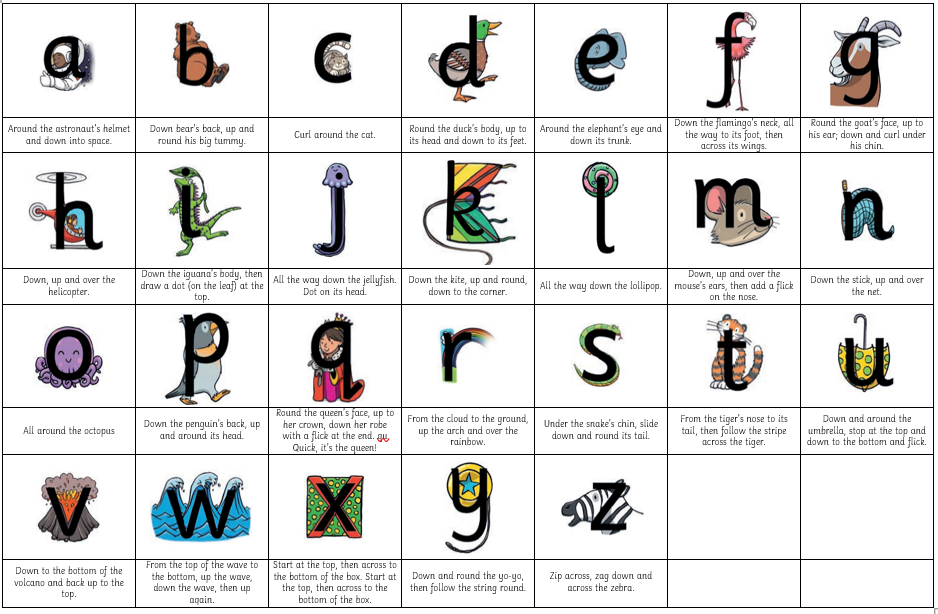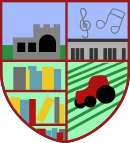English
At Newborough C of E Primary School, we believe that a high-quality education in English will teach pupils to speak and write fluently so that they can communicate their ideas and emotions to others and through their reading and listening, others can communicate with them. Through reading in particular, pupils have a chance to develop culturally, emotionally, intellectually, socially and spiritually. Literature, especially, plays a key role in such development. Reading also enables pupils both to acquire knowledge and to build on what they already know.
Our curriculum for English aims to ensure that all pupils:
- read easily, fluently and with good understanding
- develop the habit of reading widely and often, for both pleasure and information
- acquire a wide vocabulary, an understanding of grammar and knowledge of linguistic conventions for reading, writing and spoken language
- appreciate our rich and varied literary heritage
- write clearly, accurately and coherently, adapting their language and style in and for a range of contexts, purposes and audiences
- use discussion in order to learn; they should be able to elaborate and explain clearly their understanding and ideas
- are competent in the arts of speaking and listening, making formal presentations, demonstrating to others and participating in debate.
Reading
EYFS and KS1
In EYFS and KS1, children bring home 2 books each week:
- a reading practice book matched to your child’s phonic stage that they can read independently
- a sharing book that they can talk about and enjoy with their parent/carer.
Reading Practice Book
It is our role in school to teach reading. However, parents/carers play a vital role, too. Your support is needed to help your child practise reading and develop fluency and confidence.
To ensure that reading at home is an enjoyable experience and does not feel like a chore, we will send home reading practice books in which the child can read 95% of the words. This book will have been read at school during Guided Reading sessions and then sent home for children to showcase their fantastic reading. This reading practice book will be changed once a week.
Reading practice books are labelled ‘Letters and Sounds.’ Books sent home should be read at the very high rate of 95% accuracy. In reception, this means children will be starting off with wordless books until they have a good level of phonics knowledge and are able to blend confidently. Reading groups in school will be assessed regularly to ensure children are moved to the most appropriate group and reading a book that is at the correct level for them.
Your child should be able to read the practice book with developing confidence and fluency without any significant help. Your role is to listen with interest and, most importantly, to encourage and praise, enthusiastically acknowledging your child’s achievement (even if, at the early stages, this is only small). You may want to read the book more than once in a week to support their expression. After the child has read the book, it may be helpful to talk about the book (book talk). Some useful questions can be found in the back of these reading practice books.
Sharing Book
If children are to become lifelong readers, it is essential that they are encouraged to read for pleasure. The desire of wanting to read will help with the skill of reading. To help foster a love of reading, children should take a book home that they can share and enjoy with their family.
Involving the children in the choice of this book is important. In addition to accessing the library in school, we will have a mini library (using a small trolley underneath the canopy between Year 1 and Year 2) for you and your child to choose sharing books from. These books will be changed regularly and will offer a wealth of opportunities for talking about the pictures and enjoying the story. This sharing book can be changed as frequently as you wish.
Your child is unlikely to be able to read this book independently and should not be expected to do so. This sharing book is for you to read to or with the child. It is good to talk about the book (book talk) with the child, but important not to turn the discussion into a test. The goal is enjoyment.
Reading Records
Any reading done at home can be recorded in the Reading Record whether that is their reading practice book, their sharing book or any other interesting texts you’ve shared at home e.g. magazines, comics, newspapers etc. The reading records will be checked at least once a week. Children will be rewarded with house points each day they read at home (up to 5 per week).
KS2
Once children are ready to move away from the Reading Practice books, they will become free readers. At Newborough, we use Accelerated Reader to help teachers accurately monitor children's progress. Each half term, children take a Star Reader test which determines the books which will be the most appropriate level for each child. Whilst children are not restricted to this level, it will help them to make informed decisions about the best books to choose. Each time your child finishes a book, they will complete an AR quiz (which can be done either at school or at home using the links below).
Children are assigned a personalised points target based on their reading speed and comprehension skills. Each book has a certain number of points assigned (there is often a sticker giving this information on the inside of the front cover). Each time they pass a quiz, they will earn points towards their target. Children should be able to see their progress towards their target after each quiz they take.
Reading Records
Any reading done at home can be recorded in the Reading Record whether that is their chosen reading book from school, magazines, comics, newspapers etc. The reading records will be checked at least once a week. Children will be rewarded with house points each day they read at home (up to 5 per week).
The expectation is that children will read every day.
Handwriting
In EYFS, children will learn to form their letters using the rhymes (or ditties) below.

As children move through the school, we follow Twinkl 'Journey to Cursive' handwriting scheme where children will learn to join their handwriting as follows:

AR is a computer program that helps teachers manage and monitor children’s independent reading practice. Your child picks a book at his/her own level and reads it at his/her own pace. When finished, your child takes a short quiz on the computer - passing the quiz is an indication that your child has understood what has been read.
How can I help my child become a better reader?
As with anything, performance improves with practice. According to Renaissance Learning’s research, children who read at least 20 minutes a day with a 90% comprehension rate on AR quizzes see the greatest gains. Encourage your child to read at home, discuss books, ask questions about what they have read and visit your local library.
What is a STAR Reading test?
STAR Reading is used to determine your child’s reading level. It is a computer based reading assessment program that uses computer adaptive technology. Questions continually adjust to your child’s responses. If the child’s response is correct, the difficulty level is increased. If the child cannot answer a question or answers incorrectly, the difficulty level is reduced. The test uses multiple-choice questions and takes approximately 10 minutes.
What is a Book Level?
Book Levels are reported using the ATOSTM readability formula and represent the difficulty of the text. The levels range from 0.5–13.5. Books are chosen based on the ZPD range recommended for each pupil by STAR Reading.
What is a Zone of Proximal Development (ZPD)?
ZPD is the range of books that will challenge a child without causing frustration or loss of motivation. Your child will receive a ZPD, or reading range after taking a STAR Reading test. It is important for children to read with a high degree of comprehension and within his/her ZPD.
What are points?
Every book that has an AR Reading Practice Quiz is given a points value. AR points are based on the length of the book (number of words). Pupils earn a percentage of points according to how well they pass the quiz.
What is Interest Level?
The Interest level indicates for which age group a book is appropriate, based on the content and themes. These are recommendations only and teachers and parents are recommended to use their best judgement when guiding pupils.
